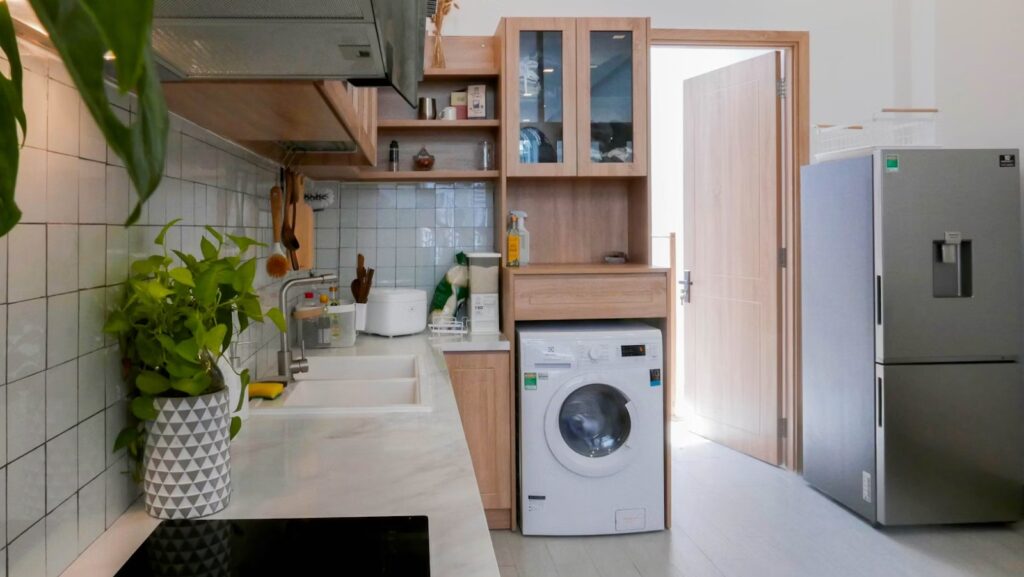Running a household involves a delicate balance of time, effort, and attention to detail. Daily routines, chores, and unexpected issues can quickly accumulate, leaving homeowners overwhelmed. Finding effective strategies to manage these responsibilities not only reduces stress but also keeps your home functioning efficiently. From handling essential repairs to maintaining cleanliness and organization, having a structured approach makes life at home more manageable. This guide explores practical solutions that can help you maintain order, comfort, and convenience without sacrificing your time or energy.
Plumbing Maintenance and Repair
A functioning plumbing system is one of the most critical aspects of a smooth-running home. Leaks, clogs, or broken fixtures can disrupt daily routines and cause significant damage if left unchecked. Investing in reliable plumbing services helps prevent small problems from becoming costly repairs. When searching for trustworthy assistance, many homeowners rely on 24/7 plumbing in Northern Virginia to address emergencies at any hour. This type of service ensures that you have immediate access to professional help for issues ranging from a burst pipe to a malfunctioning water heater. Regular inspections, routine maintenance, and quick repairs contribute to maintaining water flow, reducing the risk of structural damage, and keeping your household running without interruptions. Scheduling periodic checkups for your plumbing system can also help identify hidden issues before they escalate into more significant concerns.
Efficient Cleaning Strategies
Maintaining a clean home goes beyond appearances; it has a direct impact on health, comfort, and overall household efficiency. Developing a consistent cleaning routine transforms the process from a daunting task into a manageable habit that fits seamlessly into daily life. Begin by creating a schedule that assigns specific areas or chores to particular days, preventing tasks from piling up and making the workload more evenly distributed. Using modern cleaning tools and eco-friendly products can increase efficiency while reducing exposure to harsh chemicals.
Techniques like decluttering surfaces, wiping high-touch areas, and using microfiber cloths for dusting save both time and effort, while leaving spaces spotless. Incorporating small daily habits, such as washing dishes immediately after use, wiping counters after meal prep, and tidying commonly used rooms, can prevent messes from accumulating. For larger cleaning projects, breaking them into smaller sections and tackling them over several days reduces stress and fatigue. With a consistent approach and attention to both routine and occasional deep cleaning, your home remains organized, sanitary, and more enjoyable for everyone living there.
Smart Organization Techniques
Organization is fundamental to a well-run household. Clutter can disrupt routines, waste time, and create stress. Implementing practical storage solutions and organizational methods ensures that items are easy to locate when needed. Consider using clear containers for visibility, labeled shelves for quick identification, and furniture with built-in storage to maximize space. Seasonal rotation of items, such as clothing and kitchen equipment, helps maintain order and prevents the accumulation of unnecessary belongings.
Digital organization tools can assist with managing schedules, household inventories, and maintenance reminders. The more intentional you are about the placement and accessibility of your belongings, the smoother day-to-day operations become, reducing the friction that disorganization often creates.
Energy Efficiency and Home Maintenance
Maintaining energy-efficient practices and keeping up with home maintenance are crucial for a household that runs smoothly and stays comfortable year-round. Regular inspections of heating, cooling, and electrical systems help prevent sudden breakdowns while reducing unnecessary energy consumption, which can significantly lower utility bills. Simple measures, such as sealing gaps around windows and doors, cleaning or replacing HVAC filters, and using programmable thermostats, contribute to both comfort and efficiency. Installing energy-efficient appliances, LED lighting, and low-flow water fixtures further reduces waste and environmental impact.
Routine maintenance of roofs, siding, gutters, and insulation prevents minor issues from developing into costly repairs, protecting the home’s structural integrity. Keeping an organized schedule for servicing appliances, checking plumbing, and monitoring electrical systems allows homeowners to address potential problems before they disrupt daily life. These proactive steps not only extend the lifespan of household systems but also create a more reliable and predictable environment, allowing daily routines to continue without unexpected interruptions or added stress.
Food Management and Meal Planning
Managing food efficiently is a cornerstone of a well-functioning household. Creating structured meal plans reduces the stress of daily cooking while optimizing grocery shopping and storage. Planning meals in advance allows for thoughtful budgeting, reduces food waste, and promotes healthier eating habits.
Proper storage techniques, such as labeling, rotating perishable items, and using airtight containers, extend the shelf life of ingredients. Cooking in batches and freezing portions for future use saves time during busy weekdays. Keeping a clean and organized pantry simplifies meal preparation and prevents items from expiring unnoticed. Thoughtful management of food resources ensures that meals are consistently prepared with minimal hassle while reducing unnecessary expenses and waste.
Emergency Preparedness and Safety
Preparedness for emergencies is an often-overlooked aspect of managing a household, yet it can make the difference between minor inconvenience and major disruption. Unexpected situations such as power outages, severe weather, water leaks, or accidents require immediate attention to protect both people and property. Creating and maintaining an accessible emergency kit is a crucial step. This kit should include essentials like bottled water, non-perishable food, first aid supplies, flashlights with extra batteries, blankets, and important documents.
Beyond the basic supplies, households may benefit from having tools like a multipurpose knife, a battery-powered radio, or backup phone chargers on hand. Establishing clear safety protocols and educating every family member on these procedures ensures a coordinated response when time is critical. Routine checks of smoke detectors, carbon monoxide alarms, fire extinguishers, and emergency lighting help prevent small issues from turning into dangerous situations.
Planning escape routes, identifying safe zones within the home, and having a communication plan with neighbors or relatives further enhances readiness. Periodically reviewing and updating emergency plans allows the household to adapt to changing circumstances, such as new family members, pets, or renovations.
Keeping a household running smoothly demands attention to multiple aspects of daily life, from maintenance and organization to safety and efficiency. By implementing practical strategies, homeowners can reduce stress, prevent costly repairs, and create a comfortable living environment.
Reliable plumbing services, structured cleaning routines, smart organization, energy-efficient practices, effective food management, and emergency preparedness all contribute to the seamless functioning of a home. Investing time and effort into these areas produces long-term benefits, ensuring that the household operates efficiently while offering a safe and welcoming space for all residents.


